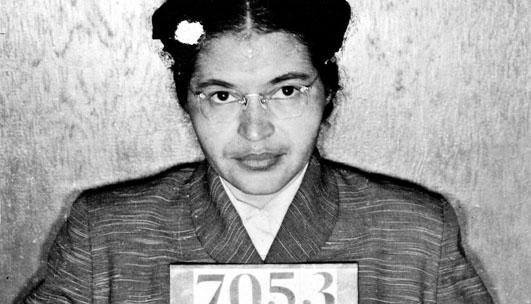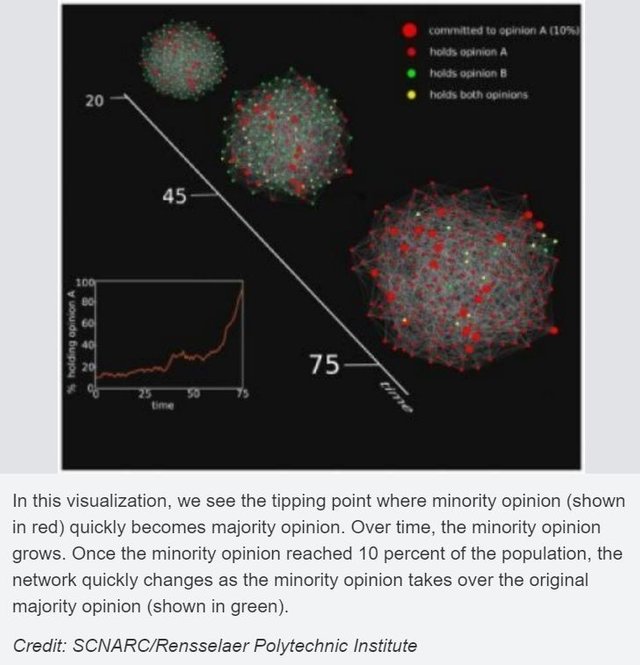How Martin Luther King succeeded - the power of small groups

Most people know of Rosa Park's simple act of bravery which catalysed Martin Luther King's civil rights movement.
She simply bravely refused to obey the bus drivers order that she give up her seat in the colored section to a white passenger. She just continued to sit for dignity, humanity and a fundamental shared sense of equality.
It became a defining moment in the civil rights movement.
I have been pre-occupied with the thousand other events, similar in meaning, impact and importance that happened countless times before Rosa Parks kept her nerve, humanity and seat and helped change the course of history.
Why did this one event have such an impact?
Most of these other events went unrecognised, some even resulted in physical harm to the instigator I'm sure. And then it tipped on a single non-violent Rosa Parks event.
Why?
A little while ago I came across a study which helped answer this.
The Tipping Point for the Spread of Ideas.

Once an unshakably held opinion reached 10 percent of the population a minority opinion "spreads like a flame" and becomes a majority opinion. Not only has this be found to be true in laboratory models it has also been found in global events like the Arab spring uprising.
How enticingly close that makes wholescale change for a range collective issues we face.
Just 1 in 10 individuals needed.
And then I ask myself could we really move to a collective sense of the entire human family for instance? Could we create a more empathic civilisation?
Too idealistic?
I don’t think so, many things that we now take for granted (universal education for example) would have sounded too idealistic in the past – but now are thought of as entirely practical and indeed necessary.
And you can see the green shoots of this movement in a change from a competitive to a collaborative economy (see the Forbes article Why The Collaborative Economy Is Changing Everything) or how todays fastest growing, most profoundly impactful companies are using a completely different model.
Or increasingly as influential authors, actors, political advisers and social and ethical prophets talk about such ideas.
For instance, below is Jeremy Rifkin (author of the 'Third Industrial Revolution' and advisor to the European Union) talking about the evolution of empathy and the profound ways that it has shaped our development of society. He recently wrote a book called 'the empathic civilisation'.
And as fundamental issues like climate change, rising inequality and an economic model that seems to be waging war on the biosphere itself become defining issues of our time - its not a second too soon.
Widespread empathy is an idea whose time has come, and is the foundation and springboard from which we need to collectively address these issues. When we see the world from each others perspectives and recognise our shared basic humanity - our common desire for health and happiness for ourselves and our friends and families, and meaning and purpose in our lives - a whole range of positive solutions come into view.
We are an interconnected society. One human family with one shared home.
Only 1 in 10 to create a tipping point.
Makes you think its possible doesn't it?